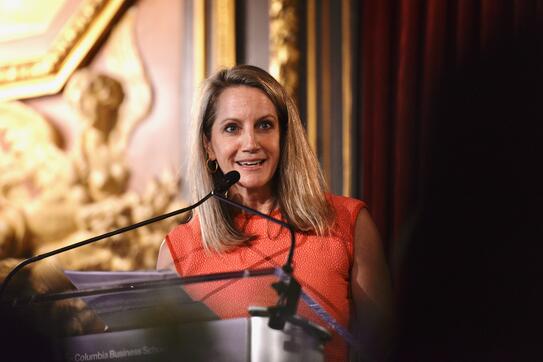In Brief
Leadership
Social Impact
Baird, Bakish honored at 45th Annual Awards Dinner
Two Columbia Business School alumni and change agents in the climate-tech and entertainment industries received special honors from the CBS board of trustees at the 45th Annual Awards Dinner.



